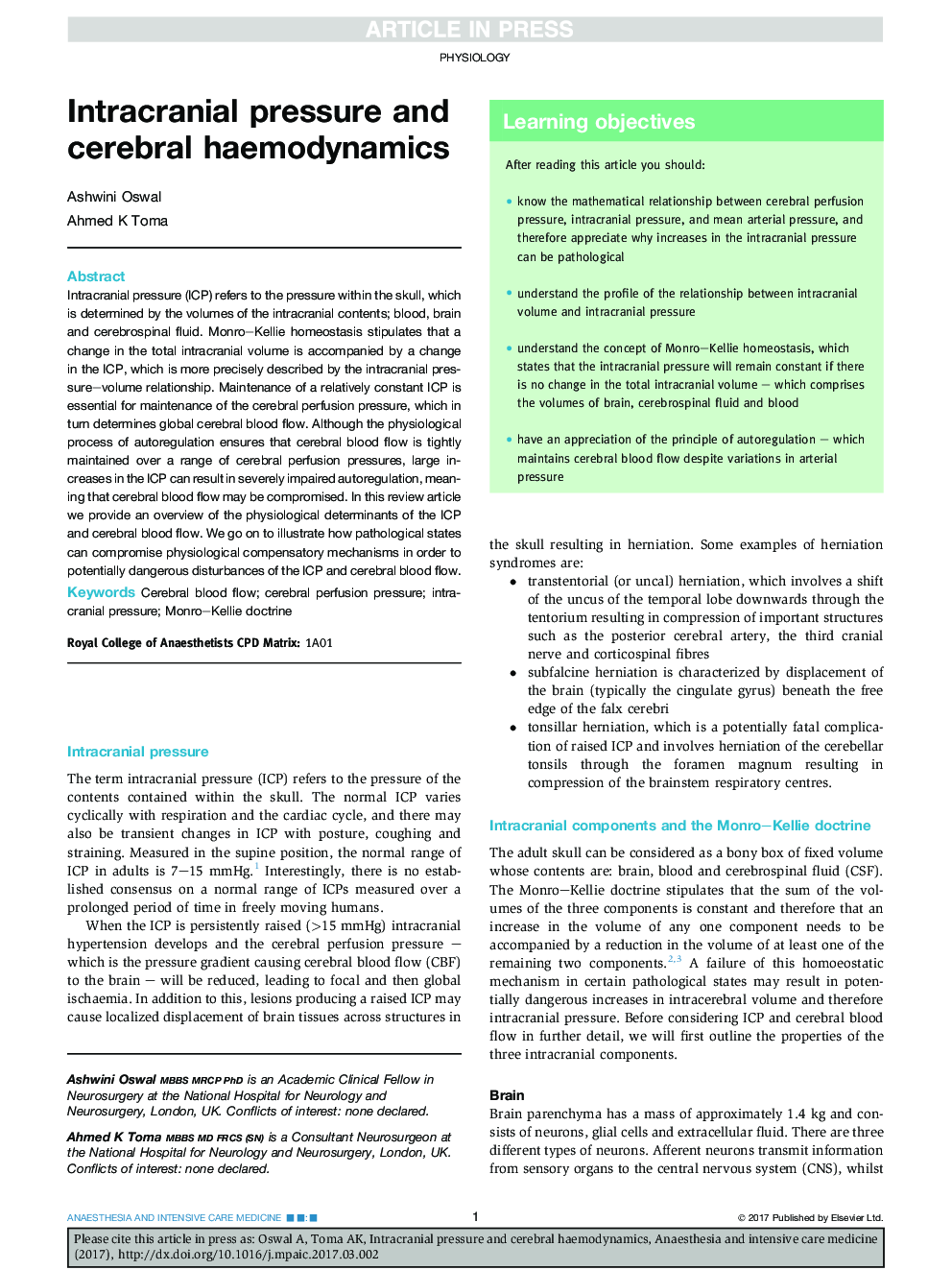| Article ID | Journal | Published Year | Pages | File Type |
|---|---|---|---|---|
| 5580196 | Anaesthesia & Intensive Care Medicine | 2017 | 5 Pages |
Abstract
Intracranial pressure (ICP) refers to the pressure within the skull, which is determined by the volumes of the intracranial contents; blood, brain and cerebrospinal fluid. Monro-Kellie homeostasis stipulates that a change in the total intracranial volume is accompanied by a change in the ICP, which is more precisely described by the intracranial pressure-volume relationship. Maintenance of a relatively constant ICP is essential for maintenance of the cerebral perfusion pressure, which in turn determines global cerebral blood flow. Although the physiological process of autoregulation ensures that cerebral blood flow is tightly maintained over a range of cerebral perfusion pressures, large increases in the ICP can result in severely impaired autoregulation, meaning that cerebral blood flow may be compromised. In this review article we provide an overview of the physiological determinants of the ICP and cerebral blood flow. We go on to illustrate how pathological states can compromise physiological compensatory mechanisms in order to potentially dangerous disturbances of the ICP and cerebral blood flow.
Related Topics
Health Sciences
Medicine and Dentistry
Anesthesiology and Pain Medicine
Authors
Ashwini Oswal, Ahmed K. Toma,
